Search
Remove Ads
Advertisement
Summary 
Loading AI-generated summary based on World History Encyclopedia articles ...
Search Results

Definition
Justinian II
Justinian II “the Slit-nosed” ruled as emperor of the Byzantine Empire in two spells: from 685 to 695 CE and then again from 705 to 711 CE. It was after his first reign and prior to his exile that his nose was cut off by the usurper Leontios...
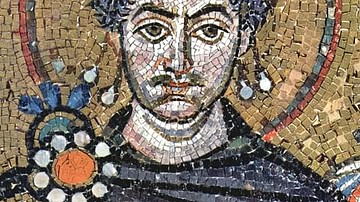
Definition
Justinian I
Justinian I reigned as emperor of the Byzantine Empire from 527 to 565 CE. Born around 482 CE in Tauresium, a village in Illyria, his uncle Emperor Justin I was an imperial bodyguard who reached the throne on the death of Anastasius in 518...
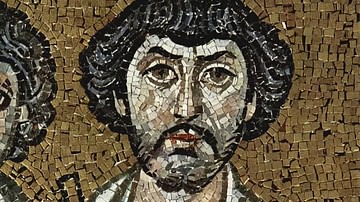
Definition
Belisarius
Flavius Belisarius (l. 505-565 CE) was born in Illyria (the western part of the Balkan Peninsula) to poor parents and rose to become one of the greatest generals, if not the greatest, of the Byzantine Empire. Belisarius is listed among the...

Article
Justinian's Plague (541-542 CE)
During the reign of the emperor Justinian I (527-565 CE), one of the worst outbreaks of the plague took place, claiming the lives of millions of people. The plague arrived in Constantinople in 542 CE, almost a year after the disease first...
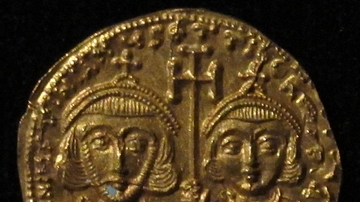
Image
Justinian II & Tiberius
A gold coin depicting Byzantine emperor Justinian II (r. 685-95 & 705-11 CE) and his son Tiberius (d. 711 CE).
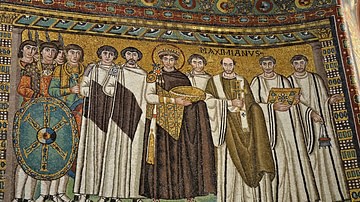
Article
Procopius on the Plague of Justinian: Text & Commentary
The Plague of Justinian (541-542 CE and onwards) is the first fully documented case of bubonic plague in history. It is named for the emperor of the Byzantine Empire at the time, Justinian I (r. 527-565 CE) and recorded by his court historian...

Definition
Corpus Juris Civilis
The Justinian Code or Corpus Juris Civilis (Corpus of Civil Law) was a major reform of Byzantine law created by Emperor Justinian I (r. 527-565 CE) in 528-9 CE. Aiming to clarify and update the old Roman laws, eradicate inconsistencies and...
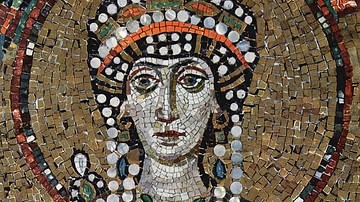
Definition
Empress Theodora
Theodora reigned as empress of the Byzantine Empire alongside her husband, Emperor Justinian I, from 527 CE until her death in 548 CE. Rising from a humble background and overcoming the prejudices of her somewhat disreputable early career...

Image
Coin of Justinian II
A gold coin of Byzantine emperor Justinian II (r. 685-95 & 705-11 CE). This example is from his second reign. (Classical Numismatic Group, Inc. http://www.cngcoins.com)
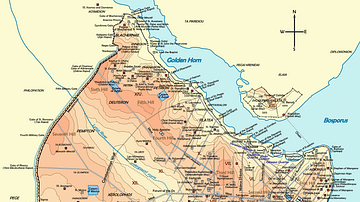
Definition
Constantinople
Built in the seventh century BCE, the ancient city of Byzantium proved to be a valuable city for both the Greeks and Romans. Because it lay on the European side of the Strait of Bosporus, the Emperor Constantine understood its strategic importance...